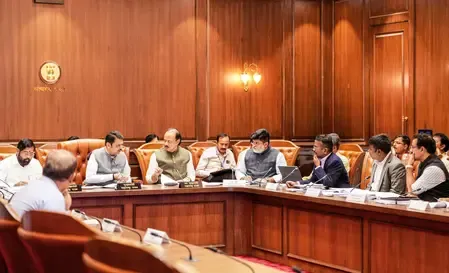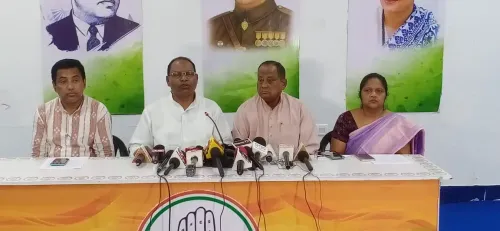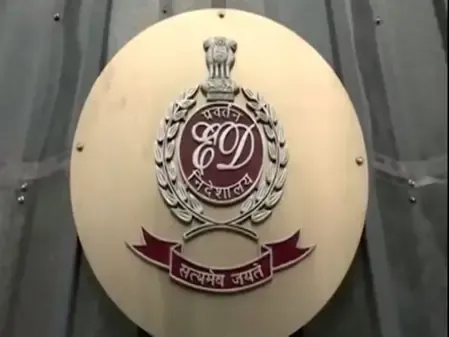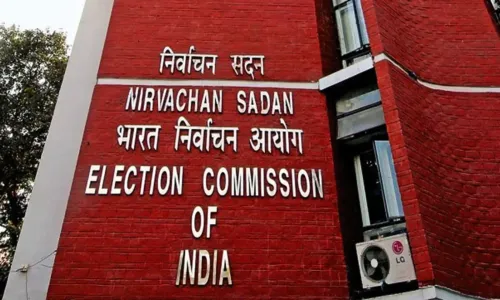Maharashtra Cabinet Approves Bamboo Industry Policy: Will It Attract Rs 50,000 Crore Investment and Create Five Lakh Jobs?

Synopsis
Key Takeaways
- Maharashtra's Bamboo Industry Policy 2025 aims for Rs 50,000 crore investment.
- The initiative could create over five lakh jobs.
- 15 dedicated bamboo clusters will be established.
- Focus on sustainable farming to combat climate change.
- Bamboo products will be included in the state's procurement policy.
Mumbai, Oct 14 (NationPress) The Maharashtra Cabinet, led by Chief Minister Devendra Fadnavis, has given the green light to the Bamboo Industry Policy 2025, which targets an investment influx of Rs 50,000 crore and aims to generate more than five lakh employment opportunities during its rollout phase.
As per an official announcement, the state will establish 15 dedicated bamboo clusters and is keen to engage with the carbon credit market. This policy seeks to boost bamboo farming and processing, providing farmers with an additional eco-friendly and sustainable income source akin to cash crops.
Recently, CM Fadnavis indicated that the state government is poised to execute the bamboo policy with a focus on building a sustainable market to promote bamboo cultivation.
He noted that bamboo farming could play a crucial role in addressing climate change challenges within agriculture, asserting that the Bamboo Mission in Maharashtra will be initiated with a sense of urgency.
“Bamboo is a pivotal element in transforming farmers' lives, presenting a sustainable alternative for those grappling with climate change impacts. Like sugarcane, once planted, bamboo requires minimal maintenance. Unlike crops such as cotton and soybean, which are vulnerable to climate fluctuations, bamboo can mitigate such effects,” he stated.
The Chief Minister emphasized the necessity of developing an integrated ecosystem to encourage bamboo farming, alongside ensuring a robust demand and supply chain for bamboo products.
“It takes approximately three years for bamboo to yield harvestable results, which is lengthy. Therefore, researchers should explore bamboo varieties that can produce results in just two years. Planting Napier grass alongside bamboo could also yield benefits,” he suggested.
Additionally, bamboo products will now be incorporated into the state’s procurement policy.
“We will focus on promoting bamboo cultivation in districts hosting energy projects and will commence a significant bamboo farming initiative on government fallow lands throughout the state. Furthermore, we plan to plant 5,000 trees in Gadchiroli, considering the local habitat,” the Chief Minister stated.
In other notable decisions, the Cabinet approved a project to renovate and enhance educational institutions and hostels operated by the People's Education Society (PES), founded by Dr. Babasaheb Ambedkar. Nine educational institutions and two hostels in Chhatrapati Sambhajinagar and Mumbai will receive upgrades with a budget allocation of Rs 500 crore over the next five years.
Moreover, the Cabinet authorized the creation of 2,228 new positions (Groups A to D) for the Mumbai Appellate Branch and the Nagpur and Aurangabad Benches of the Bombay High Court, along with necessary financial provisions for their implementation.









